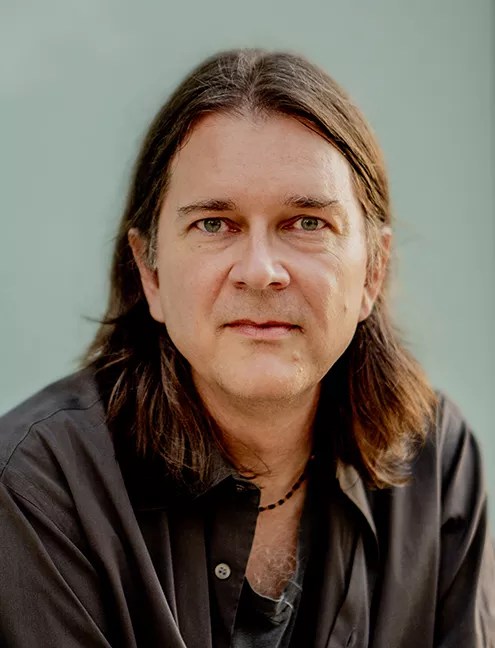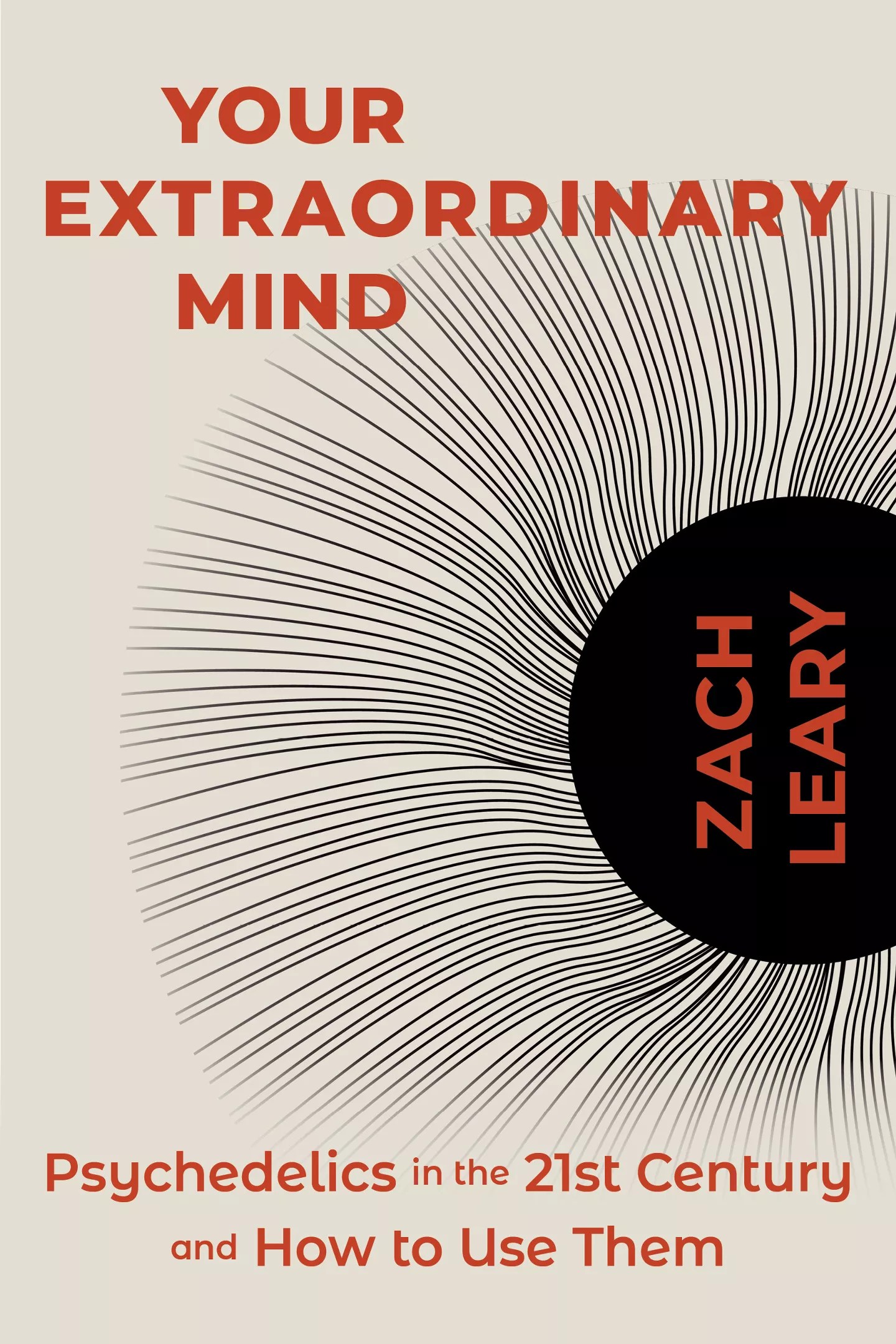
Tabitha Ford

Audio By Carbonatix
“I don’t believe psychedelics are right for any single person at any given moment,” says Zach Leary, son of the famed LSD advocate and former Harvard professor, Timothy Leary.
Now 51, Zach says he’s no longer a zealot for psychedelics in the same way he was 25 years ago. Back then, he may have told people, “‘Hey, let’s put LSD in the water supply and change the world,'” he says. “I’m not so sure I feel that way anymore.”
Leary is coming to Boulder on Thursday, May 15, to sign copies and talk about his new book, Your Extraordinary Mind: Psychedelics in the 21st Century and How to Use Them, released on April 29 by Boulder-based publisher Sounds True. His new tome is a guide for those seeking to understand the benefits of psychedelics, which have shown potential to heal trauma but also come with mentally challenging trips.
Your Extraordinary Mind offers an informed perspective on the medicalization of psychedelics as well as their utility in end-of-life situations. Leary examines several psychedelic substances in the book, including MDMA, psilocybin, DMT, ayahuasca, and his father’s obsession, acid. Psilocybin and DMT, as well as ibogaine and mescaline (not from peyote) have all been decriminalized in Colorado since 2022, and psilocybin is legal for licensed therapeutic use.
“Out of all the substances, LSD is nearly impossible for me to look at objectively due to the ironclad grip of its historical claws that caused my family great persecution,” he writes. “I wouldn’t be where I am today if it weren’t for LSD.”
Timothy Leary – thrown in prison for his acid advocacy, and pilloried by drug warrior President Richard M. Nixon as “the most dangerous man in America” – died in 1996, at 75 years old. He founded the Harvard Psilocybin Project in the early ’60s, and went on to advocate for LSD usage, popularizing his “Tune in. Turn on. Drop out.” philosophy that fueled the hippy movement. Leary became a counterculture hero and an intellectual mystic who was broken out of prison by the Weather Underground in 1970 when he was serving a sentence for possession of two marijuana roaches.
After his father’s death, Zach says he wondered about his identity other than being Timothy Leary’s son. He says he went through dark years of non-psychedelic substance abuse, working in digital marketing and advertising, before having an awakening in 2008.
“I was starting to feel a real hole in my heart,” says Leary, so he decided to visit his father’s old friend and compatriot at Harvard, Ram Dass (formerly Richard Alpert), at Dass’s home on Maui.
“It was a cataclysmic shift in my life,” Leary says. His visit included a psilocybin experience on a red sand beach. “It really moved a lot of mountains and put me in touch with my fears, my insecurities, where I was stuck. It set me on a different path.”

Zach Leary’s new book, Your Extraordinary Mind: Psychedelics in the 21st Century and How to Use Them, was published in April.
Sounds True
The younger Leary returned to the psychedelic community and embraced it as a profession. He has worked as an educator, facilitator of trips, commentator, and psychedelic podcaster – as well as a cultural legacy holder.
“As a facilitator, I had an incredible amount of data,” he says. “A lot of people don’t give underground facilitators as much credit; some of us have worked with hundreds of people, like myself, and there is an incredible amount of data and so many stories to tell, and such a perspective on how these medicines are working in the real world.”
This wealth of experiential information comes together in Your Extraordinary Mind. While his father’s “Tune in. Turn on. Drop out.” phraseology has remained in the public conversation, Leary expands on the concept in the book with “Set and Setting.”
“Set” refers to the mindset of the person taking the psychedelics, while “setting” is the physical environment in which the user trips. Through his book, Leary would like to add another “S” to this matrix: Sustainability.
“I was looking at a lot of the classic psychedelic pieces of literature, the magnum opuses from years and decades past, and I noticed, especially in the 1960s works, including my dad’s stuff, there’s not a single mention of integration,” he says.
Integration is the work done after the trip, where one can “make the most of every single journey and extract every drop of nectar to make it as impactful as possible,” Leary says. He and his life partner, Heather (who works as a ketamine therapist), decided “Sustainability” was the right term to describe this integration.
“I kind of meditated on it for a couple months, and I felt I had a bit of poetic license to expand on Set and Setting, because Timothy and Ram Dass came up with the concept in the first place,” he says. “Him being my father, Ram Dass being my teacher, I thought if there’s anyone who can expand on Set and Setting, maybe it could be me.”
Leary also addresses issues introduced by Colorado’s Natural Medicine Act, namely that psilocybin therapy in healing centers presents a high-cost barrier. “One of the great problems the secular movement is facing is access,” he says, “Removing barriers of entry to allow everyone, even marginalized communities, BIPOC people, veterans, the homeless, whoever are suffering, access to these treatments.”
Leary’s book doesn’t gloss over the fact we can have seriously challenging experiences on psychedelic substances, and with each hallucinogen covered in the book are questions people should ask themselves before taking anything. He’s an advocate of cognitive liberty, meaning adults should have the freedom to alter their consciousness as they see fit, but on the flipside, he says, “I’m not so positive that anyone should be able to walk to the head shop down the street and buy a vial of a thousand hits of LSD.”
You can see Leary talk more about his book and psychedelics on Thursday, May 17, from 7 to 10 p.m. at Roots Music Project, 4747 Pearl Street, Boulder. Tickets to the event are $23.50 to $95. Contact the Colorado Psychedelic Society to learn more.
Your Extraordinary Mind: Psychedelics in the 21st Century and How to Use Them is available at booksellers for $19.99.